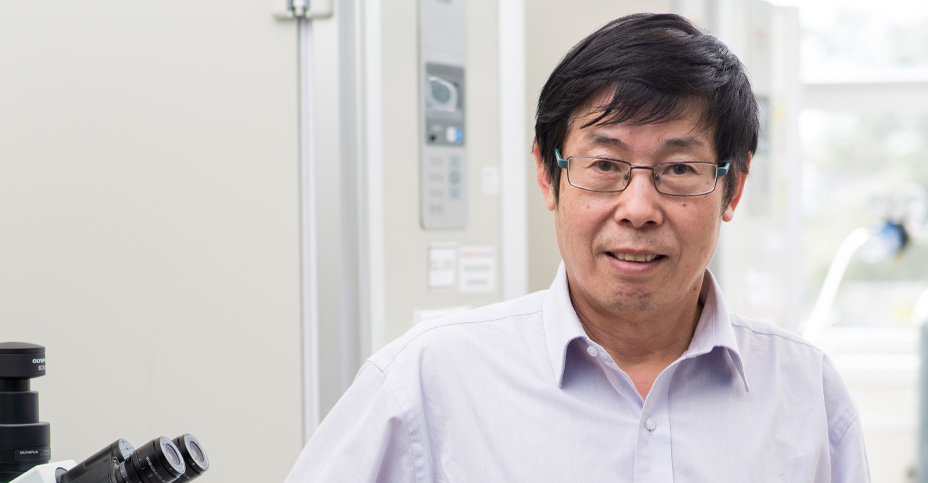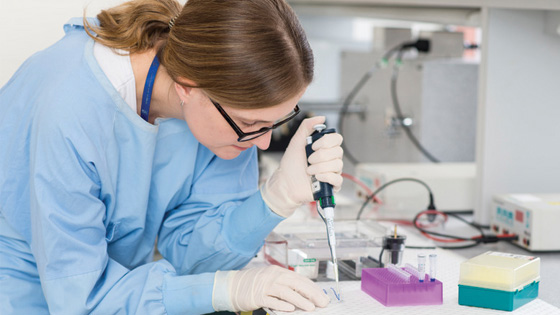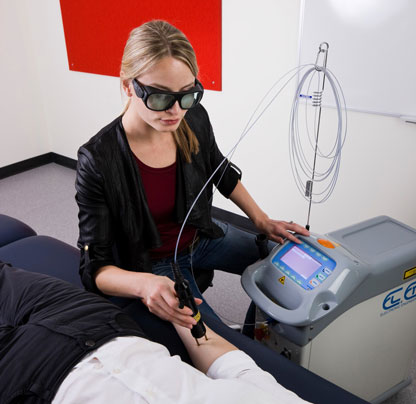
Xin-Fu Zhou, Research Chair in Neurosciences, University of South Australia
Professor Xin-Fu Zhou, and fellow researchers in China, have made a ground-breaking discovery which helps explain the changes that happen in Alzheimer patients’ brains. With further research this development can better predict and prevent Alzheimer’s disease, and can also lead to new medications and treatments.
Alzheimer’s disease is an irreversible, progressive brain disorder that slowly destroys memory and thinking skills, and alters a patient’s behaviour as a result. The biggest risk factor is age, with one in four people over 85 having dementia. It was not until the 1970’s that the condition known as ‘senile dementia’ and Alzheimer’s disease were recognised as the same condition, and not a normal part of ageing. Unfortunately, there is currently no cure for Alzheimer’s disease.
Alzheimer’s disease is caused by damage to the structure of the brain as a result of too much toxic metabolic product, which breaks down nerve-connectivity and causes wastage of brain cells and message pathways. People with Alzheimer’s disease have abnormal amounts of protein outside the brain cells called amyloid-beta plaques that impair signalling between brain cells. They also have fibres called tau tangles inside the brain cells that cause cell death by preventing the normal transport of food and energy within the cell. As brain cells die, the brain shrinks, which can be detected using magnetic resonance imaging (MRI).
Prof Zhou, in collaboration with Professor Yanjiang Wang from China’s Third Military Medical University, have discovered a possible new therapy to treat Alzheimer’s disease using the neurotrophin receptor p75 (p75NTR). The neurotrophin receptor p75 (p75NTR) is involved in the critical pathway where the disease starts and develops. The level of the p75 extracellular domain is reduced to low or very low levels whereas the full length of the molecule is increased in the Alzheimer’s disease brain, compared with a normal brain.
“We can use the change in p75 as a biomarker for Alzheimer’s disease diagnosis or prediction, because this change occurs before the amyloid-beta plaques develop,” Prof Zhou says.
“It is a possibility that if a person has a very low concentration of p75 extra-cellular domain then we might be able to manage the level to prevent the person getting Alzheimer’s disease, or change their lifestyle to treat them earlier.
“Currently all therapies for Alzheimer’s disease are put in place at a very late stage, and even clinical trials using amyloid-beta drugs fail because the development stage is quite late, so the drugs are unable to really act effectively.”
Prof Zhou hopes to receive funding to further investigate how p75 levels can be monitored and managed to better predict and prevent Alzheimer’s disease. He has already proven the concept that supplementation of p75 extracellular domain can alleviate Alzheimer’s disease and improve the learning and memory functions.
“This research is very important, it costs a lot of money because it is in a very early research stage, particularly for diagnosis, so we really need support.”
As well as potential new treatments for Alzheimer’s disease, Xin-Fu is also conducting research into brain-derived neurotrophic factors linked to major depression, and work which may lead to the cure of Type 1 diabetes using a patient’s own urine cells.
You can support Prof Zhou continue his research and prevent Alzheimer’s disease in the future.

100% of your gift will go directly to support health research at UniSA - there are no administration fees, no overheads and no hidden costs.
Support our researchers continue their work in preventing illness, improving health systems and services, creating more effective therapies, and advancing health equality.
